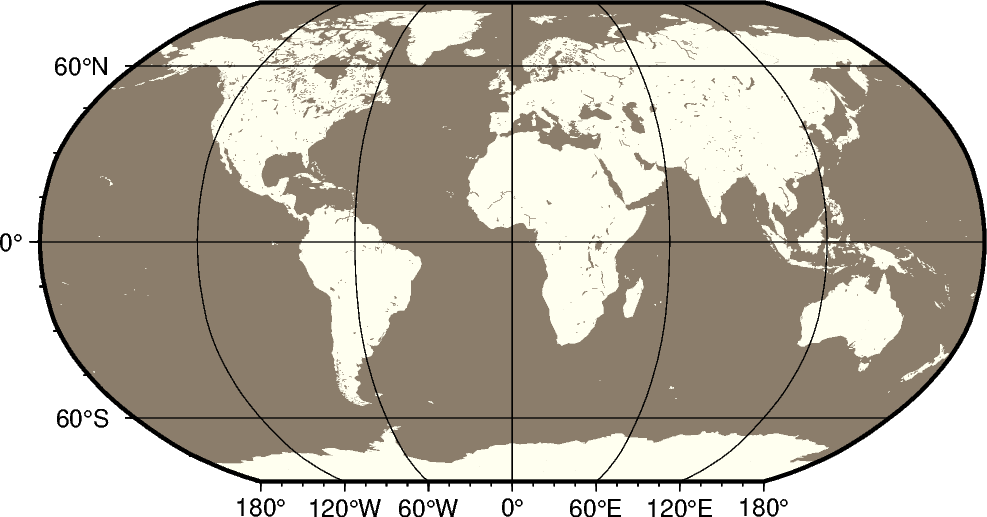Note
Go to the end to download the full example code.
Robinson projection
The Robinson projection, presented by the American geographer and cartographer Arthur H. Robinson in 1963, is a modified cylindrical projection that is neither conformal nor equal-area. Central meridian and all parallels are straight lines; other meridians are curved. It uses lookup tables rather than analytic expressions to make the world map “look” right [1]. The scale is true along latitudes 38° north and south. The projection was originally developed for use by Rand McNally and is currently used by the National Geographic Society.
n[lon0/]scale or N[lon0/]width
The projection is set with n or N. The central meridian is set with the optional lon0, and the figure size is set with scale or width.
Footnotes

import pygmt
fig = pygmt.Figure()
# Use region "d" to specify global region (-180/180/-90/90)
fig.coast(region="d", projection="N12c", frame="afg", land="ivory", water="bisque4")
fig.show()
Total running time of the script: (0 minutes 0.213 seconds)